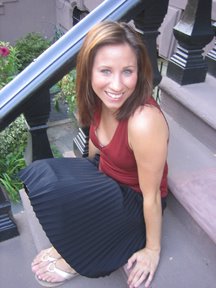"When I went away to college in 1967, I was going to save the world. I was not even able to save myself.
I had always been a fearful and anxious child. Extremely shy, I often wished to become invisible. The pinnacle of agony and self-consciousness came when I was called on in class, or was required to make a speech. I was having anxiety attacks, but only in certain situations, and never recognized them for what they were.
Away from home and living in a college dorm, I felt lost and alone. The campus was huge, classes were overcrowded, and I was exhausted and overwhelmed. I grew more anxious and homesick every day.
While in a crowded classroom, I had my first full-blown panic attack. With my heart pounding and feeling nauseated, I got up, left, and returned to the dorm. This was repeated over and over, with each episode increasing in intensity. Finally I was no longer able to go down to the dining hall to eat. I would lie awake most of the night, terrified by what was happening to me. Soon I left school, and spent the next three years or so in and out of hospitals, seeing therapists, and otherwise housebound.
As time passed I lost all hope of finding relief and sank deeper into depression. I started cutting myself just to feel alive and in control of something. No one understood. I had several therapists, none of whom ever really explained what was happening to me. One day, I came across an article that mentioned a book by Claire Weeks -- Hope and Help for your Nerves. It was a turning point for me. Not only was I not crazy, I had an identifiable disorder that many other people had, too. This finally gave me hope that I could recover from this and be myself again.
I have had periods of stability, and relapses. But I know now that the panic will pass. Depression, anxiety's evil sister, has been harder to overcome. It is still too easy to slip into darkness after a bad experience or hurtful exchange. With therapy and medication, I am working on that.
But you can find yourself again -- don't stop trying."



